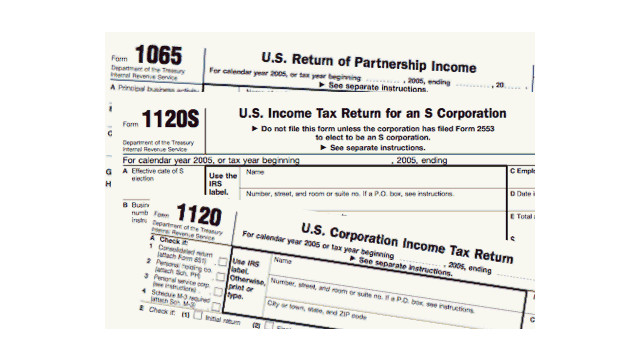Many small business owners fail to enlist the help of a CPA or tax professional, and can be caught off guard by their tax obligations.
“The best thing small business owners can do is engage with a CPA throughout the year, not just at tax time,” says Eric Burgmaier CPA, CVA, a managing partner at Burgmaier & Associates, an Albuquerque CPA firm. “There’s a difference between preparation and tax planning,” says Burgmaier, who points out that it’s impossible to have any impact on a business owners’ tax if they haven’t benefited from tax planning throughout the year. “You can’t advise after the fact,” says Burgmaier. “At that point, you’re reacting, not planning.”
So, what should small business owners do to prepare for tax season?
The first step should be initial planning with a CPA or tax professional. While many small business owners may not have the budget to engage a CPA on a full-time basis, almost any business would benefit from an initial consultation – way before tax season starts.
That’s because the value and expertise of a CPA goes well beyond an April 15 deadline. A CPA can advise business owners on everything from the best time to purchase a big-ticket item, to whether their dusty inventory qualifies as a business deduction.
But the relationship works both ways. There are some things that business owners can do to make tax season easier; for themselves and for their accountant. Here are just a few:
Use accounting software
Use accounting software to properly track revenues and expenses. Modern accounting software looks nothing like its predecessors, and is designed for business owners, who should dump the manual ledgers and start tracking business transactions properly. If in the market for accounting software, consider a cloud application that offers easy data entry and provides anytime/anywhere accessibility.
Keep good records throughout the year
Instead of scrambling at the last minute trying to identify expenses that can be deducted and updating depreciation schedules once, maintaining a list of deductible expenses can make year-end much easier for business owners and accountants.
Manage your receipts properly
Yes, there is a better place to store business receipts than a shoebox, or a file folder, or a wallet or purse. Snapping a photo of a receipt is a good way to manage receipts without the mess of individual receipts, and makes it easy to retrieve an individual receipt should it be needed in the future.
Keep a separate record of any big-ticket purchases
This information will be needed in order to take a Section 179 deduction or to create a depreciation schedule. Having the receipt handy can also be beneficial when creating a depreciation schedule, so make sure these receipts are included with any others.
Provide details of any taxes you’ve paid throughout the year
The last thing a business owner wants to do is over pay their taxes. Keeping track of any estimated payments made throughout the year will ensure that the correct amount is deducted from any tax liability.
Know what business tax credits your business may qualify for
For example, a business that provides health care to employees will likely qualify for the Small Business Health Care Tax Credit. In fact, the IRS has more than two dozen business tax credits that a business may qualify. While it’s likely that a CPA is aware of them, business owners should be as well.
Complete the tax organizer
Business owners should pay particular attention to the items requested in their tax organizer and do their best to provide the requested items to their CPA or accountant sooner rather than later. These are just a few of the documents that will need to be provided.
- Financial statements – These can include a balance sheet and an income statement.
- Payroll records – If the business paid employees at any time throughout the year, payroll records should be provided.
- Receipts – Receipts are one of the most important things to provide, preferably not in a shoebox. The best way to manage receipts is to attach them to a corresponding expense.
- Asset purchases – Provide details for all assets purchased throughout the year, including the date the asset was purchased, the total amount of the purchase, and when the item was placed into service. This information should also be included in any depreciation schedules.
- Statements – Both bank statements and credit card statements can be useful; bank statements to corroborate deposit amounts, and credit card statements to assist with business expense deductions.
Finally, Burgmaier suggests that business owners become a more active participant in the entire tax process. “Business owners should familiarize themselves with the tax process. Know what to look for, what questions to ask, and be proactive.”
With April 15 rapidly approaching, the best time to start putting tax documents has already passed. The second-best time is now.
Thanks for reading CPA Practice Advisor!
Subscribe Already registered? Log In
Need more information? Read the FAQs




